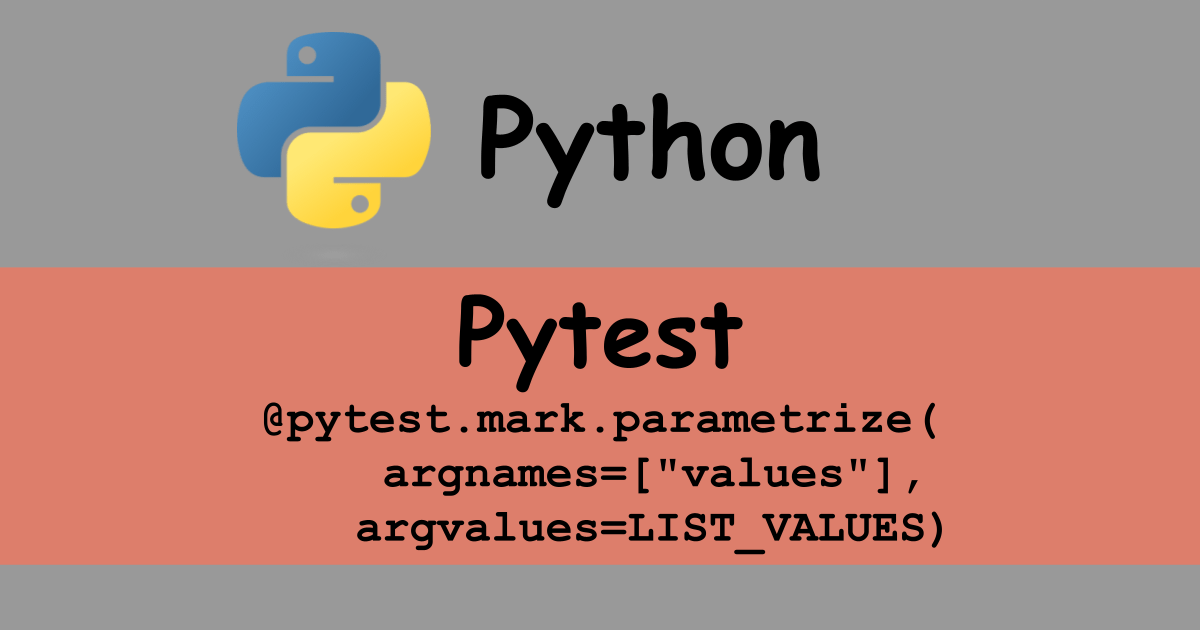I searched for a way to pass a list as a parameter but I didn’t find the answer. Because it is too easy to do…?
Passing multiple arguments
If multiple arguments are necessary to inject, we can write it in the following way.
@pytest.mark.parametrize(
argnames=["x", "y", "z"],
argvalues=[
(1, 2, 3)
]
)
def test_pass_multi_args(x, y, z):
print(f"(x, y ,z): ({x}, {y}, {z})")
# (x, y ,z): (1, 2, 3)Then, I thought that list could be passed in the following way.
@pytest.mark.parametrize(
argnames=["x"],
argvalues=[
([1, 2, 3]) # with square brackets
]
)
def test_pass_list_fail(x):
print(f"List: {x}")But it is actually incorrect. Pytest throws an error in this case because it requires three arguments in this case. Look at the next example. It defines 3 arguments.
@pytest.mark.parametrize(
argnames=["x", "y", "z"],
argvalues=[
([1, 2, 3])
]
)
def test_pass_multi_args2(x, y, z):
print(f"(x, y ,z): ({x}, {y}, {z})")
# (x, y ,z): (1, 2, 3)Use list to pass list
The solution is the following.
import pytest
TEST_DATASET = [
[[1, 2, 3]],
[["1", "2", "3"]],
[["1", 2, 3]],
[[[1, 2, 3], [4, 5, 6]]],
[[["1", 2, 3], [4, "5", 6]]],
[[[[11, 12, 13], [21, 22]], [[31, 32], [41, 42]]]],
]
@pytest.mark.parametrize(
argnames=["values"],
argvalues=TEST_DATASET
)
def test_pass_list(values):
print(f"values: {values}")
# values: [1, 2, 3]
# values: ['1', '2', '3']
# values: ['1', 2, 3]
# values: [[1, 2, 3], [4, 5, 6]]
# values: [['1', 2, 3], [4, '5', 6]]
# values: [[[11, 12, 13], [21, 22]], [[31, 32], [41, 42]]]Each parameter needs to be in square brackets.




Comments